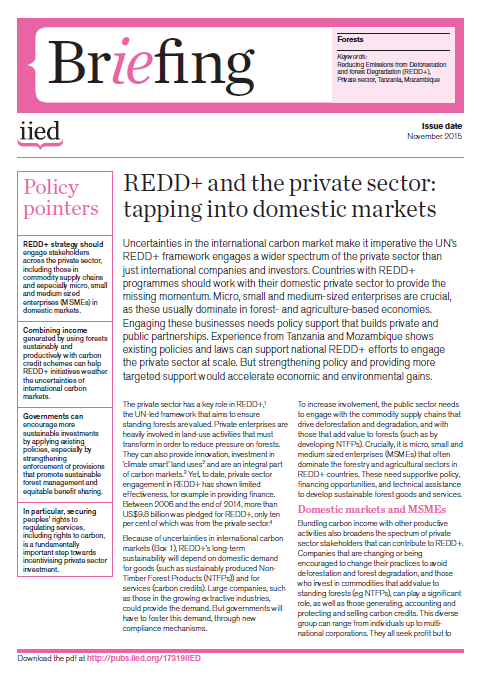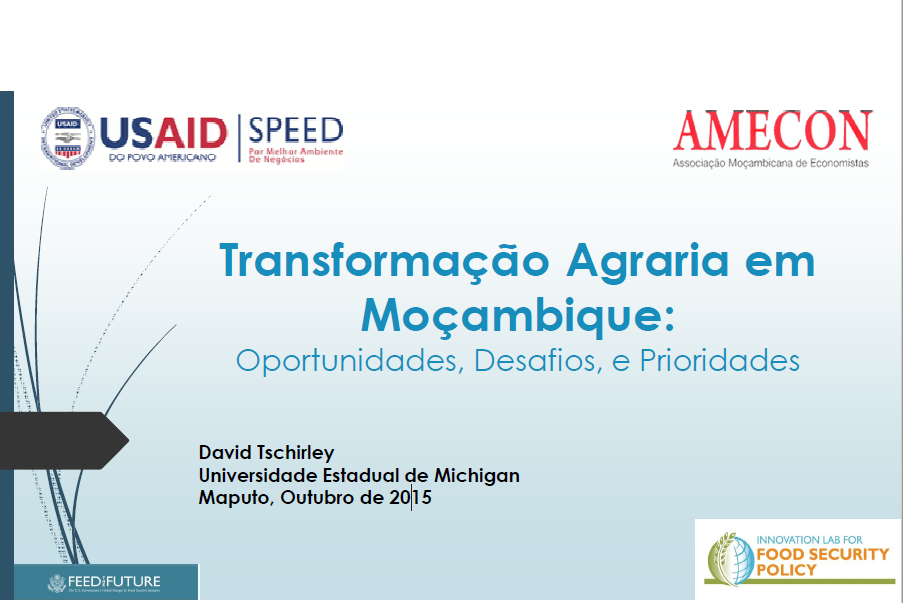REDD+ and the private sector: tapping into domestic markets
Uncertainties in the international carbon market make it imperative the UN’s REDD+ framework engages a wider spectrum of the private sector than just international companies and investors. Countries with REDD+ programmes should work with their domestic private sector to provide the missing momentum. Micro, small and medium-sized enterprises are crucial, as these usually dominate in forest- and agriculture-based economies.








